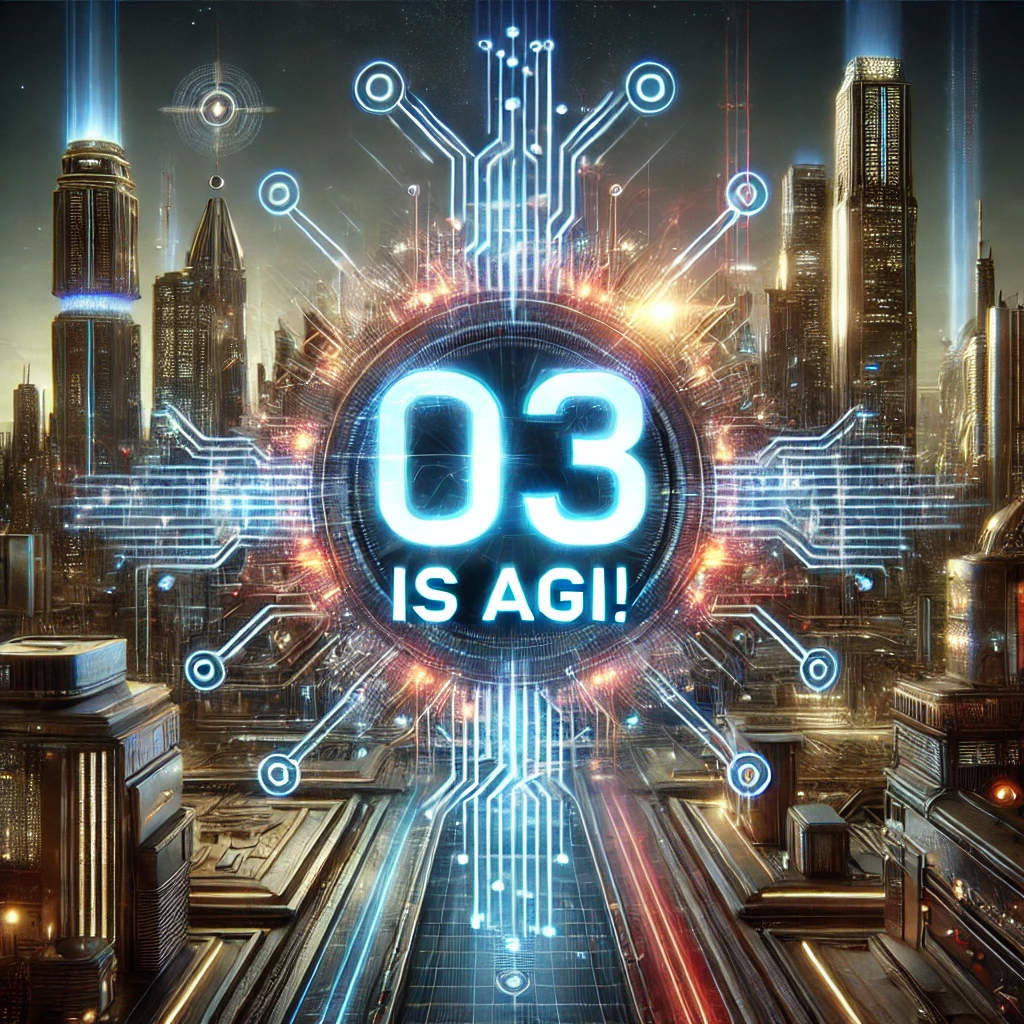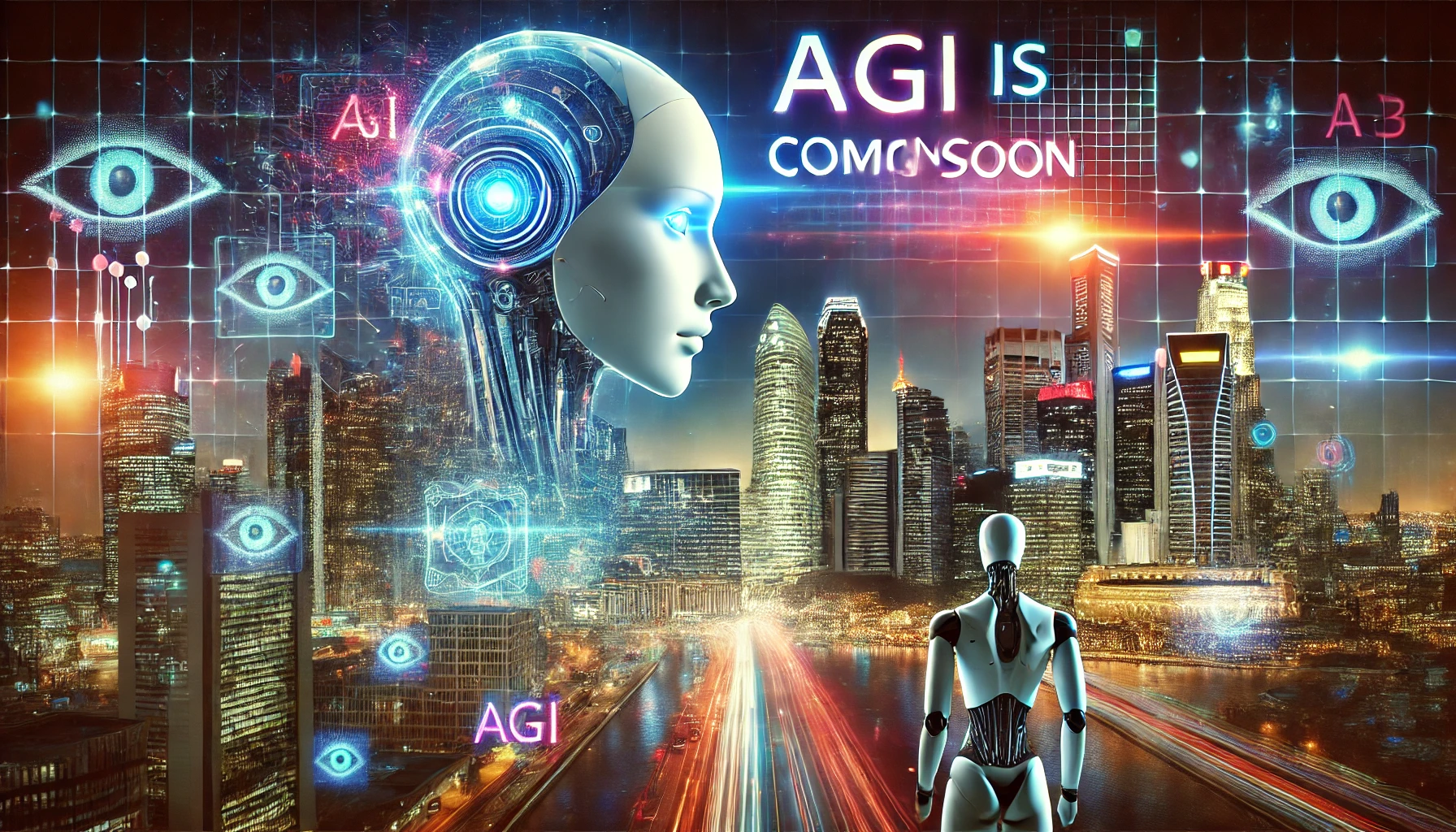The emergence of o3, a groundbreaking AI model, marks a pivotal moment in artificial intelligence. Its performance across the ARC (Abstraction and Reasoning Corpus) benchmark and other standard evaluations has led experts to debate whether it qualifies as an Artificial General Intelligence (AGI). This article explores o3’s results in key benchmarks, compares its performance to human levels, and discusses its implications for AGI.
The ARC Benchmark: A Litmus Test for AGI
The ARC benchmark, designed by François Chollet, tests an AI’s ability to reason abstractly and solve tasks it has never seen before. Unlike many datasets that rely on pattern recognition, ARC evaluates conceptual reasoning, a hallmark of human intelligence.
o3’s Performance on ARC
o3 scored an unprecedented 90% on the ARC benchmark, surpassing both prior state-of-the-art AI models and even average human performance (70%). The chart below illustrates the performance comparison:
| Model | ARC Score (%) |
|---|---|
| o3 | 90 |
| Human Average | 70 |
| GPT-4 | 60 |
| GPT-3.5 | 55 |
Beyond ARC: Comprehensive Benchmarks
o3 has been rigorously evaluated on a range of benchmarks to assess its generality:
- MMLU (Massive Multitask Language Understanding):
- o3 achieved 92%, outpacing human experts, who average around 89%.
- Big-Bench (BBH):
- With a score of 88%, o3 demonstrated strong reasoning, ethical decision-making, and creativity.
- HumanEval (Code Generation):
- o3’s coding abilities are unmatched, with a 98% success rate on the HumanEval dataset.
The following chart highlights o3’s performance across multiple benchmarks:

Benchmark Data in Context
General AI Capability
The table below compares o3’s average performance to other leading AI models:
| Benchmark | o3 (%) | GPT-4 (%) | GPT-3.5 (%) | Human (%) |
|---|---|---|---|---|
| ARC | 90 | 60 | 55 | 70 |
| MMLU | 92 | 85 | 75 | 89 |
| Big-Bench (BBH) | 88 | 77 | 68 | 85 |
| HumanEval | 98 | 80 | 70 | N/A |
What Makes o3 Unique?
- Unprecedented Abstraction: o3’s architecture includes novel attention mechanisms that enable it to conceptualize abstract relationships.
- Meta-Learning Capabilities: o3 learns and applies concepts from previous tasks to solve new, unseen problems, much like human reasoning.
- Efficient Adaptation: o3 adapts to dynamic environments with minimal retraining, a key AGI characteristic.
The Road to AGI: Is o3 Already There?
The term AGI implies an intelligence capable of performing any intellectual task a human can. While benchmarks like ARC provide strong evidence of general reasoning, there remain open questions:
- Ethical Reasoning: Can o3 align with human values across diverse cultures?
- Creativity: Does its creativity match or surpass human innovation?
Why is OpenAI not claiming AGI yet when it’s so obvious?
OpenAI’s partnership with Microsoft includes a clause that affects the declaration of achieving Artificial General Intelligence (AGI). According to reports, this clause stipulates that if OpenAI develops AGI—a highly autonomous system that outperforms humans in most economically valuable work—Microsoft’s access to OpenAI’s most advanced models would be terminate
Conclusion
With o3’s stellar performance across benchmarks and its capacity for abstract reasoning, many argue it meets the criteria for AGI. Whether o3 represents true AGI or is a precursor to it, its capabilities signal a transformative era in AI. In my personal opinion it’s here. We only need the official claim when OpenAI and Microsoft come to an agreement. The most important conclusion however remains: AGI IS ACHIEVED
“I, Evert-Jan Wagenaar, resident of the Philippines, have a warm heart for the country. The same applies to Artificial Intelligence (AI). I have extensive knowledge and the necessary skills to make the combination a great success. I offer myself as an external advisor to the government of the Philippines. Please contact me using the Contact form or email me directly at evert.wagenaar@gmail.com!”
[SEO optimized]



Pingback: AGI is here, what does it mean for us?’ - evertslabs.org
Pingback: OpenAI Unveils o3: Has AGI Been Achieved? - evertslabs.org